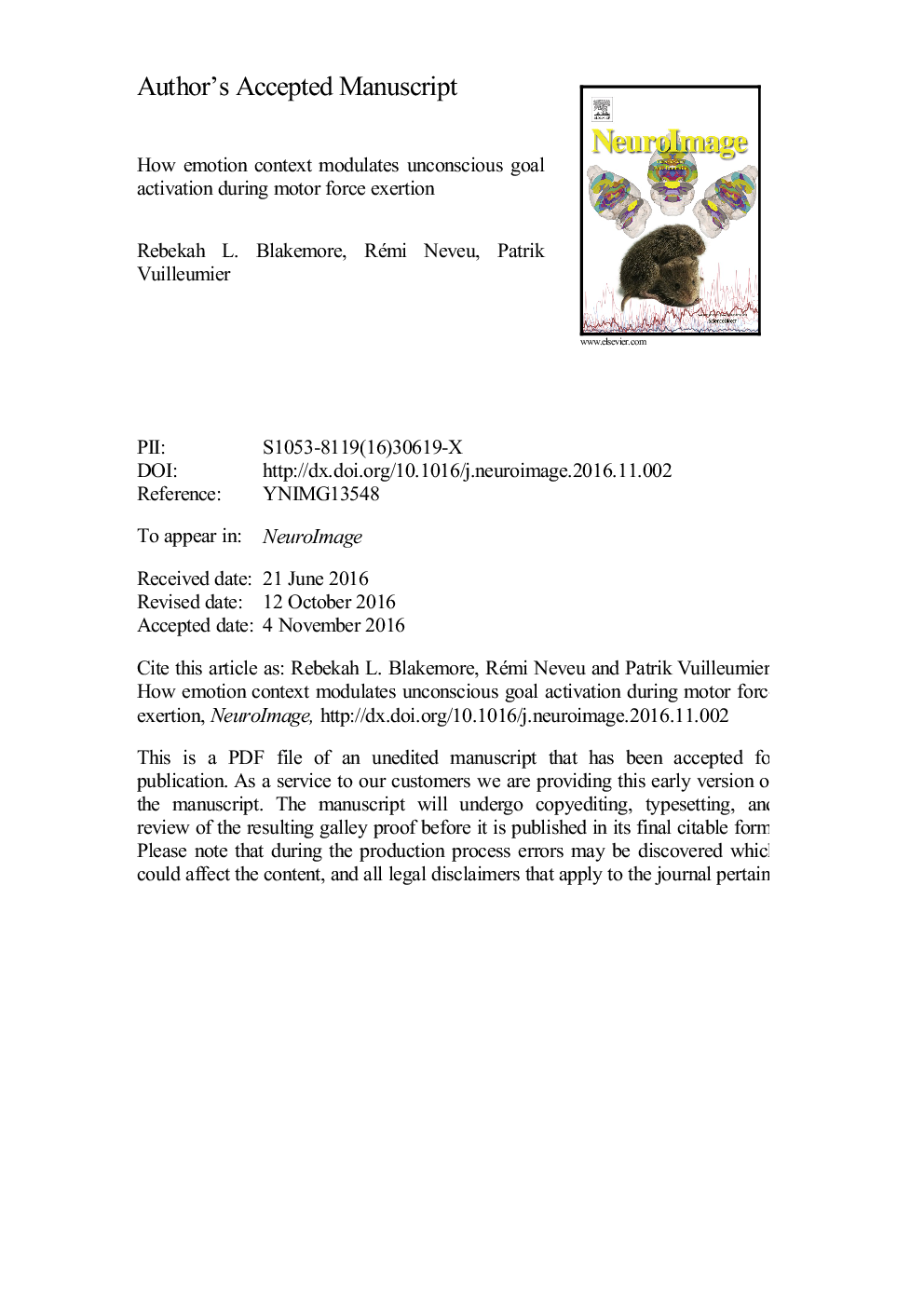ترجمه فارسی عنوان مقاله
چگونگی حالت احساسات، فعال شدن هدف ناخودآگاه در هنگام اعمال نیروی موتور را تعدیل می کند
عنوان انگلیسی
How emotion context modulates unconscious goal activation during motor force exertion
| کد مقاله | سال انتشار | تعداد صفحات مقاله انگلیسی |
|---|---|---|
| 143673 | 2017 | 40 صفحه PDF |
منبع

Publisher : Elsevier - Science Direct (الزویر - ساینس دایرکت)
Journal : NeuroImage, Volume 146, 1 February 2017, Pages 904-917

